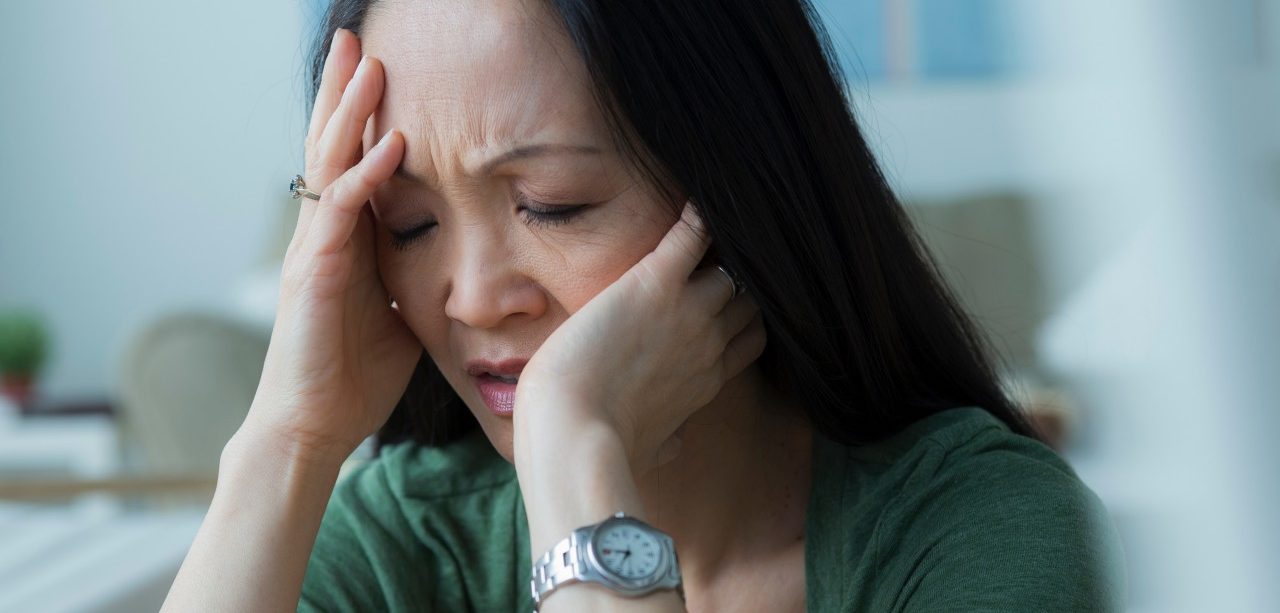What Causes a Headache?

When you have a headache, your body is sending you signals because common causes of headaches include diet, stress, and allergies.
What causes a headache?
Headaches come in many forms, from occasional to chronic, from mild to migraine. Whatever type of headache you experience, your body is trying to tell you something important about your lifestyle and health.
YOU MIGHT ALSO LIKE: Lifestyle Changes May Treat Headaches Best
Dehydration
One common cause of persistent headache is chronic, mild dehydration. Dehydration headaches frequently occur after exercise, accompanied by irritability and poor concentration. The more severe your dehydration, the more intense your headache. Dehydration is one of the primary triggers for people who suffer from migraines.
Luckily, there’s an easy solution. Studies have found a decrease in both mild and severe headaches when participants made a conscious effort to drink more water throughout the day.
Skipping meals
Not eating enough can also cause headaches. Skipping meals usually causes “fasting headaches” that can range from mild background pain to severe tension headaches. Irritability, nausea, and brain fog often accompany fasting headaches.
One study in Denmark found that fasting headaches usually happen within 16 hours of skipping a meal. The good news is that eating will resolve the headache; the bad news is that it can take a full 72 hours.
Eating regular meals is the only way to prevent fasting headaches. If you do miss a meal, try eating a high-protein snack to keep your stomach full.
Anxiety
Many studies link stress levels and anxiety with headaches.
Headaches are both more frequent and more severe for those with depression or clinical anxiety, but people without chronic conditions can still experience anxiety or stress headaches. A study of hospital data in Greece found that the high-anxiety period of that country’s economic crisis resulted in higher tension headache levels in the general population and more patients seeking treatment for headache pain.
One research team in Nepal found that women are more likely to experience anxiety headaches, though they appear in men as well.
It’s not just adults who suffer from stress headaches. Studies in China linked high levels of academic stress to students’ headaches, and children with anxiety disorders show a higher frequency of headache symptoms than children without such disorders.
Sleeplessness and neck pain often accompany anxiety headaches. If you have either of these symptoms along with a headache, review the stress levels in your life. You might be experiencing an anxiety headache.
Poor sleep
If you’ve had a pounding headache after a sleepless night, you’re not alone. Many studies have found a link between fatigue and headaches, but the reason can vary from person to person.
One study found that insomnia is directly linked to frequent headaches. Other research shows that chronic migraine and tension headache sufferers may need more rest than the general population, making them more likely to have a fatigue headache even after getting what should be a full night’s sleep.
Some studies also show a link between headaches and a lack of sleep due to breathing disorders such as snoring or sleep apnea, while a separate study in Taiwan found that poor quality sleep is linked to headaches the next day.
Although the exact relationship between headaches and sleep is still being investigated, the overall results agree: Getting enough sleep is essential to staying headache-free. If you frequently wake up with a pounding head, talk to your doctor about improving the amount and quality of your sleep.
Allergies
If your headaches are accompanied by itchy eyes and runny nose, the problem may be allergies. One study found that the frequency of migraine attacks is higher for people with dust and pollen allergies, and other research found that sinus headaches are often triggered by allergens.
Food allergies can trigger headaches. One study of gluten sensitivity found that people with celiac disease and wheat allergies suffer from headaches after ingesting wheat. Other potential allergens, such as nuts and certain spices, also show a link to headaches.
Some “sinus headaches” might be chronic migraines, according to one 2016 study. If you frequently have sinus pain with your headaches, talk to your doctor. You may be experiencing migraines.
Hormonal fluctuations
Though studies have found that both men and women experience headaches due to hormonal fluctuations, women are more likely to have headaches than men during their reproductive years.
Separate studies have found that women experience headaches associated with menstruation, pregnancy, and menopause, all periods of time when hormone levels are in a state of flux. Other research found that women who suffer from migraines experience their most intense attacks during menstruation. Such headaches last longer than non-menstrual headaches and are often accompanied by nausea.
No matter what is causing your headaches, talk with your doctor. Treatment options include painkillers, antihistamines, synthetic hormones, physical therapy, acupuncture, and lifestyle modifications.
YOU MIGHT ALSO LIKE: Treatment for Headaches Isn’t Given Much Thought
Updated:
March 31, 2023
Reviewed By:
Janet O’Dell, RN